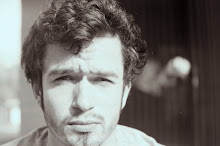Art is not only essentially at one with the highest philosophy; it is “the repetition of that same philosophy in the highest potence Reflexive self-consciousness does not occupy the same privileged position as it does for Hegel since all things are, understood within the absolute, finally one
Reflexive self-consciousness does not occupy the same privileged position as it does for Hegel since all things are, understood within the absolute, finally one
 While Reason is the “full expression of absolute identity as such, only art can express or represent the synthesis of knowledge and action, of that which is known in thought with that which can take on form in the world. It is in art that the “real” becomes “truly similar to and equal to its own idea…Schelling’s “potences” are “universal forms recurring in the same way in all objects.”Even the inorganic contains the organic principle subordinated within itself.”
While Reason is the “full expression of absolute identity as such, only art can express or represent the synthesis of knowledge and action, of that which is known in thought with that which can take on form in the world. It is in art that the “real” becomes “truly similar to and equal to its own idea…Schelling’s “potences” are “universal forms recurring in the same way in all objects.”Even the inorganic contains the organic principle subordinated within itself.” “Schelling then sees the history of art not as a history of progress but as a series of variously emphasized relations of the real to the ideal…relations that are in the final analysis the same, when produced to the level of the absolute”
“Schelling then sees the history of art not as a history of progress but as a series of variously emphasized relations of the real to the ideal…relations that are in the final analysis the same, when produced to the level of the absolute”

“preoccupation with the problem of how a particular work of art comes to be, how “individual beautiful things can issue from universal and absolute beauty…this…is…the particular version, for aesthetics, of the general question of philosophy as a whole, “namely, to understand the manifestation of the ideas through particular things
Art is a…positive act; it is the objectification of the spirit of nature that is within human beings, and is analogous to nature’s own generation of phenomena with “consistency of form and regularity”
Like natural things, art is as “emanation of the absolute”; Schelling’s word Ausfluss, implies an active, vital process of coming into being
The archetypes of all things are absolutely beautiful, and the universe as a whole is the absolute artwork of… “the source of all beauty”.
Art is the medium of our insight into the noumenal essence, “the real representation of the forms of things as they are in themselves.’
“At one point he remarks that beauty emerges “automatically” with the “removal of that which does not belong to the essence”.
The activity of the artist would then consist in stripping away…”the veil from the hidden beauty of the world,” a world otherwise obscured and distorted by “particular facts.
This explanation seems to lead to an idea of the artist as one possessed with superior vision, and to a strong distinction between individual human beings in the world. It is not pursued.”
Where philosophy requires self-consciousness at the ideal level, art appears in an unconscious act in the real world.”
“For Schelling, Greek mythology represents the “highest archetype of the poetic world” Here, the “synthesis of the absolute with limitation” that is the “mystery of all life” is most fully and completely carried out.
The Greek gods, understood collectively, are an organic whole: “all possibilities within the realm of ideas as constructed by philosophy are completely exhausted in Greek mythology” Here the reigning mode is the symbolic, so that the particular is at all times also the universal…true mythology comes from a “common formative impulse”
Homer recites a poem that is already there in every sense except the empirical.”
“…the modern world…is founded in divisive individuality and in the “irrational”.
his predicament is frequently celebrated…as the only world worth having, one out of which authentic wholeness must be achieved and earned.
But Schelling’s account is reluctant to celebrate this felix culpa of the modern condition.”
“Schelling diagnoses the modern condition as founded in nothing less than the “invention” of history.”
“for [the Greeks]…time was not critical, since the infinite was already in the world with them, as nature…Nature is no longer sufficient in itself, but becomes a “mystery,” an allegorical form needing to be deciphered.
Mythology (by which Schelling means the body of ideas and practices holding together a culture) no longer creates religion, as it did for the Greeks, but must somehow emerge from it.”
“Schelling’s term for the definitive syndrome of the modern condition is…”estrangement,”…self-projection through alienation that is the beginning of mature self-consciousness…Being human in a human culture involves experiencing and utilizing estrangement.”
“Questions about individual genius are misleading since what genius depends upon is not the individual”


































